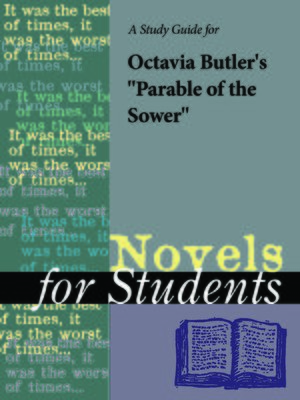

The way her character drifts from organised Christianity to a worldview that encompasses Darwinian evolution, Buddhism and the second law of thermodynamics resonated deeply. The Parables reference the Bible, and religion is a central theme. Butler certainly deserves more recognition for her work, as do many other underrepresented black creatives. She’s also surrounded by a mix of other black and latino characters, something I found to be a refreshing change from other sci-fi I’ve read. The author herself is a black woman, and the main character in this story is, too. But we also know that Hollywood has a diversity problem, and that is certainly a hurdle to depicting Butler’s world. It’s a good example of a speculative fiction story told well. The recent film, Arrival, is an adaptation of a short story I read last year by Ted Chiang called Story of Your Life. It’s also ripe for a big screen adaptation. It is a spectacular, all-consuming piece of fiction, and severely under-appreciated. Everything else now seems so derivative next to this. This was my first foray into Butler’s work, and as I read it, I was reminded of other popular books and films like Children of Men, 28 Days Later, Interstellar. Nothing beats picking up a novel that resonates so deeply with your own worldview, your deepest questions and worries. I’ve yet to read or watch any other dystopian fiction that’s as prophetic as this - and these books are already over a decade old.

These are small examples from a larger world that Butler builds and fills with all the worst possible outcomes of human society as it looks right now. Later, she laments not having access to a proper news source, instead having to go by “news bullets that purport to tell us all what we need to know in flashy pictures and quick, witty, verbal one-two punches” of around 20 words. A bigoted, populist right-wing candidate running in the 2032 presidential election uses the phrase “Help us make America great again”. Her imagining of the future is scarily prescient. Everything else is grounded in the real world - just a particularly terrifying, yet entirely plausible version of it.īutler published Parable of the Sower in 1993, and the sequel, Parable of the Talents, in 1998. The only truly sci-fi element is the character’s “hyperempathy” condition. The world she lives in is brutal and chaotic, yet not dissimilar from our own. We’re only eight years away from the time it is set, when we meet our main character, Lauren Olamina.

Butler’s dystopian science-fiction novel, in the year 2016. There’s something deeply unsettling about reading Parable of the Sower, Octavia E.


 0 kommentar(er)
0 kommentar(er)
